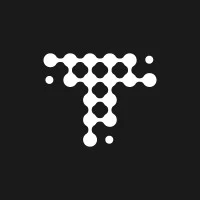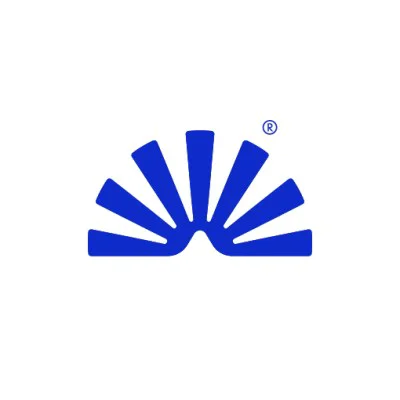Lead AI/ML Engineer

Protective Life
Summary
Join Protective as a Lead AI/ML Engineer and contribute to the development, maintenance, and adoption of AI tooling and frameworks for data scientists. Collaborate with the Lead Data Platform Engineer and Cloud Data Architect to integrate AI solutions, define best practices, and ensure alignment with enterprise architecture. Drive the creation and adoption of scalable, cloud-native tooling to empower data scientists. Lead the implementation of MLOps and AIOps practices for AI model lifecycle management. Promote best practices for AI development, including responsible AI and agentic framework design. Provide technical mentorship to data scientists and ensure governance and compliance for AI models.
Requirements
- 7-10 years of experience in AI/ML engineering, with at least 3 years in cloud-based AI environments and hands-on work with LLMs and agentic frameworks
- 3+ years of experience with MLOps/AIOps practices, focusing on tooling for model development and monitoring
- 5+ years of proficiency in Python (e.g., Pandas, Scikit-learn, TensorFlow, PyTorch, Hugging Face Transformers) and SQL
- 3+ years of experience with cloud platforms (Azure Databricks or similar platform preferred)
- Strong experience with PySpark for large-scale data processing, feature engineering, and embeddings for LLMs
- 3+ years of experience with CI/CD pipelines and version control (e.g., Git, Azure DevOps) for AI tooling integration
- Deep understanding of machine learning, generative AI, LLMs, and agentic frameworks, including techniques like fine-tuning, RAG, and multi-agent systems
- Hands-on experience with LLM frameworks (e.g., LangChain, LlamaIndex, AutoGen) and prompt engineering for tasks like text generation, summarization, and reasoning
- Experience building AI tooling for production environments, collaborating on containerization (e.g., Docker, Kubernetes) with platform engineers
- Strong knowledge of AI governance, responsible AI, and ethical considerations for LLMs (e.g., bias mitigation, hallucination control), aligned with architectural standards
- Excellent communication and collaboration skills to work with the Lead Data Platform Engineer, Cloud Data Architect, and cross-functional stakeholders
- Proven ability to mentor data scientists and drive adoption of AI tooling and frameworks
- Experience with big data tools (e.g., Hadoop, Spark, Kafka) and data orchestration platforms (e.g., Airflow, Databricks Workflows)
Responsibilities
- Own the design, development, and adoption of cloud-based tooling and frameworks for AI-driven workflows, focusing on LLMs and agentic frameworks, ensuring scalability, reproducibility, and usability
- Collaborate closely with the Lead Data Platform Engineer to integrate and deploy AI solutions into the DataHub platform, ensuring seamless operationalization
- Partner with the Cloud Data Architect to define and implement best practices, standards, and governance for AI model development, particularly for LLMs and agentic systems
- Drive the adoption of standardized tooling for model development, testing, and monitoring by data scientists across the organization
- Lead the implementation of MLOps and AIOps practices for AI model lifecycle management, working with the Lead Data Platform Engineer to automate deployment pipelines
- Promote best practices for AI development, including prompt engineering, model interpretability, responsible AI, and agentic framework design, in alignment with architectural standards
- Provide technical mentorship to data scientists, fostering expertise in AI tooling and adoption of standardized frameworks
- Ensure governance and compliance for AI models, collaborating with the Cloud Data Architect to address fairness, transparency, and regulatory requirements
- Monitor and optimize the adoption and performance of AI tooling, ensuring alignment with business needs and platform reliability
- Own the development of a cloud-native MLOps/AIOps framework for training, fine-tuning, validating, and monitoring AI models, including LLMs and agentic frameworks, ensuring ease of adoption by data scientists
- Build and maintain reusable AI libraries and templates for common use cases (e.g., prompt engineering, LLM fine-tuning, Retrieval-Augmented Generation (RAG), agentic task orchestration)
- Drive adoption of best practices for LLM experimentation (e.g., prompt optimization, context window management) and agentic system design, in collaboration with the Cloud Data Architect
- Create tooling for explainability and interpretability of LLMs and agentic systems, aligning with architectural standards for stakeholder trust and compliance
- Collaborate with the Lead Data Platform Engineer to automate AI model deployment pipelines using cloud-native tools (e.g., Azure ML, Databricks MLflow, Hugging Face)
- Develop monitoring solutions to track model performance, drift, and bias, working with the Lead Data Platform Engineer to integrate with DataHub monitoring systems
- Partner with the Cloud Data Architect to establish AI governance frameworks, including model documentation, versioning, and responsible AI policies for LLMs and agentic systems
- Facilitate integration of AI workflows with the DataHub, collaborating with the Lead Data Platform Engineer to ensure seamless access to curated data domains for LLM training and agentic system inputs
- Work with the Lead Data Platform Engineer to optimize data pipelines for AI use cases, including vector databases and embeddings for LLMs and RAG systems
- Own the development and adoption of agentic frameworks for autonomous task execution and multi-agent collaboration, ensuring alignment with platform deployment capabilities
- Document and promote best practices for cloud-based AI tools (e.g., Jupyter, PySpark, LlamaIndex, MCP, A2A), in collaboration with the Cloud Data Architect
- Lead the adoption of advanced AI techniques (e.g., few-shot learning, chain-of-thought prompting, multi-modal LLMs), ensuring compatibility with platform infrastructure
Preferred Qualifications
Familiarity with vector databases (e.g., Pinecone, Weaviate) and infrastructure as code for AI workloads is a plus
Benefits
- Comprehensive health, dental and vision insurance
- Mental health benefits and an employee assistance program
- A variety of paid time away benefits ( e.g. , paid time off, paid parental leave, short-term disability, and a cultural observance day)
- Contributions to healthcare accounts
- A pension plan
- A 401(k) plan with Company matching
- ProHealth Rewards, Protective’s platform to improve wellbeing while earning cash rewards
- Annual incentive based on individual and Company performance






